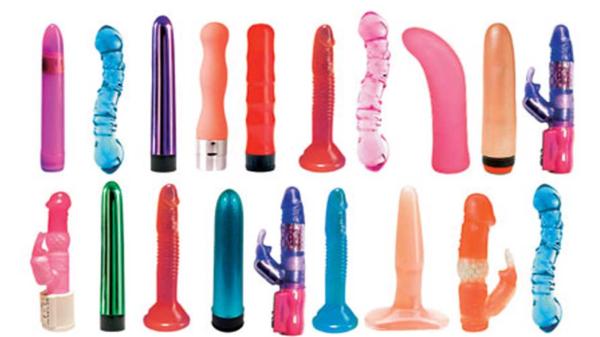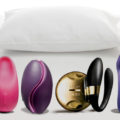 What are Phthalates?
What are Phthalates?
As you may have been told, phthalates are “plasticizers” used to soften PVC vinyls. If vinyls do not have any softeners, they are basically very hard PVC plastic. There are different grades of vinyls, from food grade for your plastic food storage containers or baggies (which don’t give off a smell) to economical grade that are used in some lower end athletic shoes and other products. You can tell the grade of the vinyls and quantity of plasticizers (phthalates) used by the smell. The more you smell, the lower the grade and the more phthalates used. You are probably aware of the terrible chemical smell that many of the “jelly” vibrators give off. This is basically the vinyl off-gassing the large amounts of phthalates.
Phthalate exposure has been linked to obesity, cancers, low sperm count, and fetal reproductive system effects. The adult industry is not regulated by the FDA or EPA, so there are no standards that are currently followed. These government agencies do regulate children’s toys and they no longer allow phthalates in children’s toys or pacifiers.
Silicone:
Silicone is a skin friendly and non-toxic sex toy material. 100% Silicone contains no polyvinyl chloride (PVC) and is phthalate free. Silicone is also nonporous, so germs have nowhere to hide and can be completely sterilized. It is important to note that products labeled “silicone” are not necessarily 100% silicone and are often silicone composites. When shopping for a non toxic silicone toy, make sure the packaging says 100% silicone instead of just “silicone.”
Skin-Safe Elastomers:
Simplified, elastomers are latex-free and phthalates free. Latex and phthalates are often the culprits for people who have sensitivities to various toys. Elastomers are a completely different material. They start out soft and have product added to make them harder. This product is then removed by high vacuum so there are no residual hardeners. No solvents are used in this process and there is no latex. This type of material is ideal for manufacturing a variety of textures.
Glass
Glass Wands are healthy and environmentally friendly From an environmental perspective, there is no better sex toy material than glass. Glass is made by the same ocean from which we evolved. It is all natural, chemical free, and biologically inert. Inevitably, nature’s technology has been cultivated by man, which allows glass to be shaped and molded into an array of artistic and functional items. Even dildos! For your health, glass wands are great. Unlike plastics, glass wands are non-porous and can be completely cleaned and sterilized after use. The rigidity of glass makes them essential for effecting g-spotting. They can be warmed up, cooled down, and even thrown in the dishwasher. Aesthetically, artisan blown glass is stunningly beautiful! Every glass wand is one of a kind, which allows you to choose a unique piece that is right for you and your body.
Cyberskin & Other Realistic Materials:
Realistic materials, including Cyberskin, are intended to mimic the feel of skin. Sex toys made from realistic materials such as Cyberskin, Softskin, NewSkin, Ultraskin and others warm quickly and retain body heat which increases the realistic feel. They are a good choice if you’re looking for something that feels soft like skin. The realistic materials are also porous and generally difficult if not impossible to disinfect – making them less than ideal for sharing with a partner unless you’ve both been tested for sexually transmitted diseases, require care when cleaning, and need an occasional dusting of corn starch or Cyberskin Renew, which is basically talc powder and is included with most realistic sex toys. You must also use a water-based lubricant because silicone lubes will damage the outer surface.
Jelly Rubber & Latex
Jelly Rubber is a commonly used material by sex toy manufacturers, because it is cheap and moldable. Jelly rubber toys are made from PVC and chemical softeners called phthalates. If vinyls do not have any softeners, they are basically very hard PVC plastic. There are four indicators to determine whether you are purchasing a jelly rubber or PVC composite toy:
Whether the material is disclosed.
Whether there are warning labels on the packaging indicating that the item you are purchasing is for novelty purposes only or if there are health disclaimers.
Jelly Rubber toys emit a chemical smell caused by PVC off-gassing of phthalates. The more you smell, the lower the grade and the more phthalates used.
Hard Plastic
Plastic sex toys have been around for a long time. Plastic is hard and inflexible which transfers vibrations very well. It’s relatively non-pourous and can be disinfected to prevent infection. Plastic may be a good material if you like your sex toys to have a solid, hard feel to them. Hard plastic toys do not contain phthalates.
Before using hard plastic toys internally, check any seams for rough edges. Many people use a condom over the toy to prevent irritation from this. Often these types of toys come with jelly or silicone sleeves which fit over the toy.
Tags : sex toys, allergy, latex, safety, materials
Article Source: http://www.articlemarketing.org
Katherine Lynn has been in the sex toy business for over 20 years. Starting out in home parties (Nice-n-Naughty), she was one of the first to take her company online in 1989. Drawing on years of experience working as a forum manager in the former Compuserve’s Human Sexuality Forum, Katherine has gained the reputation of being unusually honest about the products she sells as well as for providing terrific how-to information. It has been her goal over the years to show that sexuality products can be presented in a tasteful, adult fashion. Visit Katherine’s site at: www.theromancestore.com




Leave a Reply